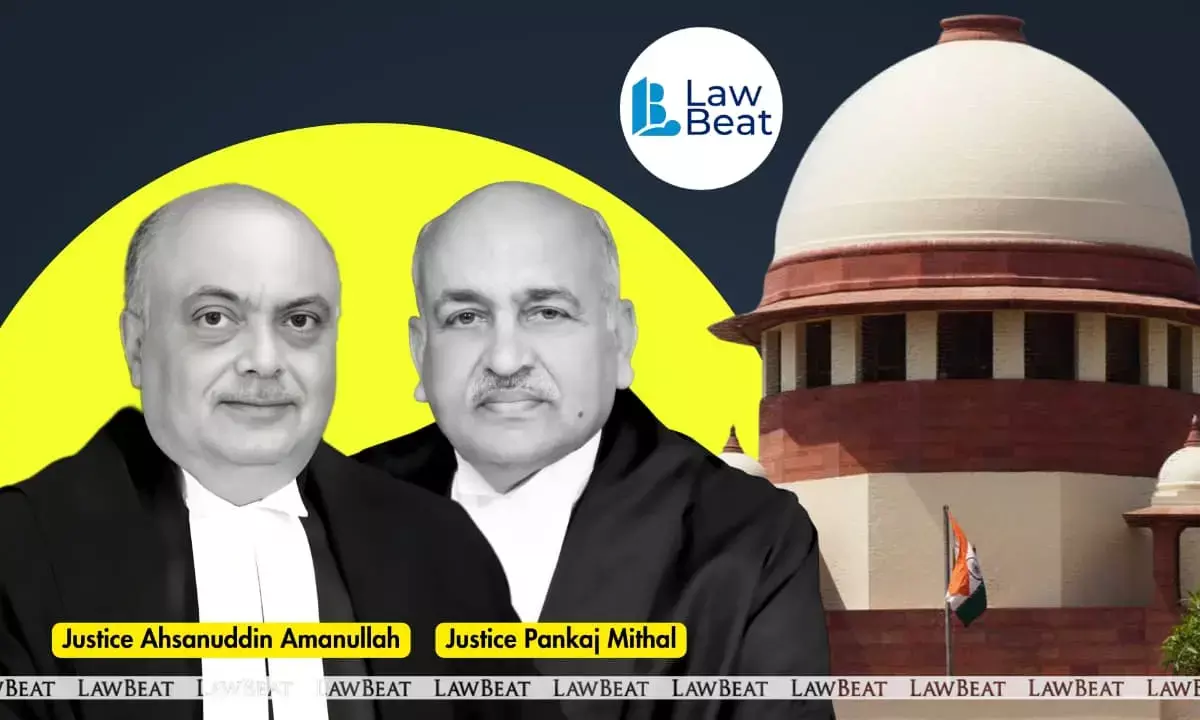Section 156(3) CrPC: SC Explains Magistrate's Discretion to Direct Police Investigation on Private Complaints

The Supreme Court orders investigation to continue in Belagavi property dispute involving fake e-stamp paper
The Supreme Court on November 4, 2025 ordered a criminal investigation to continue that had been quashed by the Karnataka High Court in connection with an alleged fake e-stamp paper and forged rent agreement used in a property dispute in Belagavi.
A bench of Justices Ahsanuddin Amanullah and Pankaj Mithal set aside the Karnataka High Court's orders of July 24, 2019 and November 18, 202. Court said that the Magistrate had correctly ordered an investigation under Section 156(3) CrPC, finding enough material to justify police inquiry into the allegations of forgery, conspiracy and fraud.
Background of the case:
The dispute pertained to a property owned by the family of Sadiq B. Hanchinmani in Belagavi. Sadiq claimed ownership of the land through an oral gift from his father. However, in 2009, his father executed a sale deed transferring the property to a woman named Veena. Sadiq challenged that sale in civil court, but his suit was dismissed. He then filed an appeal in 2013 before the Karnataka High Court, where an interim order was passed directing both parties to maintain status quo over the property.
The alleged forgery:
During the pendency of that appeal, Sadiq alleged that Veena and her husband broke open the lock of the disputed property, carried out renovation, and later produced a rent agreement dated May 20, 2013, claiming that the property had been leased out even before the status quo order. When Sadiq obtained official verification from the Department of Stamps and Registration, he discovered that the e-stamp paper used for that rent agreement actually belonged to a different transaction between two other individuals. The e-stamp number matched a sale agreement unrelated to the parties, exposing the rent agreement as fake.
What legal action did Sadiq take after discovering this?
Sadiq filed a private criminal complaint before the Judicial Magistrate First Class in Belagavi, accusing Veena and others of forgery, conspiracy and cheating under Sections 120B, 201, 419, 471, 468, and 420 of the IPC. The Magistrate found a prima facie case and referred the matter to the police for investigation under Section 156(3) of the CrPC. This led to the registration of an FIR in 2018 at Khade Bazar Police Station.
High Court's opinion in the case:
Two single judge benches of the Karnataka High Court through separate orders in 2019 and 2021, quashed the proceedings initiated by the Magistrate. The High Court held that the Magistrate had not applied his mind before referring the matter for investigation, and observed that such an order could only be passed if the Magistrate was acting on a final police report under Section 173(8) CrPC.
What did the Supreme Court say about that reasoning?
The apex court disagreed with the High Court’s interpretation. It noted that the Magistrate had indeed acted within his powers under Section 156(3) and that his use of the word “further” in his order did not mean he was directing a reinvestigation. The Supreme Court observed that there was enough material on record, including official confirmation that the e-stamp paper was fake, to justify a full-fledged investigation.
The bench cited Madhao v. State of Maharashtra (2013), Ramdev Food Products Ltd. v. State of Gujarat (2015), and Neeharika Infrastructure Pvt. Ltd. v. State of Maharashtra (2021) to reinforce that when a complaint discloses a cognizable offence, the Magistrate can direct the police to investigate before taking cognizance. Court emphasized that the High Court should not interfere at the initial stage unless the complaint is manifestly frivolous or barred by law.
Conclusion:
Court set aside both Karnataka High Court orders, restored the FIR, and directed the Khade Bazar Police Station to complete the investigation expeditiously in accordance with law. It clarified that the accused are free to present their defence during investigation or trial but that the High Court’s interference at the preliminary stage was unjustified.
Case Title: Sadiq B Hanchinmani Vs The State of Karnataka & Ors
Judgment Date: November 4, 2025
Bench: Justices Ahsanuddin Amanullah and Pankaj Mithal
